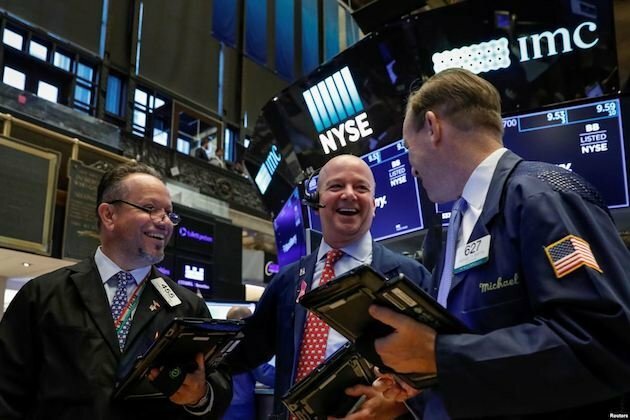Strikes: how rising household debt could slow industrial action this year
The Conversation
26 Jan 2023, 04:09 GMT+10

After decades of declining real wages and deteriorating working conditions, strike activity has spiked over the last year, particularly in the United Kingdom. From nurses and teachers to railway and postal workers, employees are demanding wage increases and improved working conditions - and walking out if they believe employers' offers won't stave off the rising cost of living.
However, my research suggests that many workers may increasingly feel unable to strike because of their growing household debt.
This current wave of strikes is the largest in more than a decade, but it is nowhere near the heights reached in the UK during the 1970s. September 1979 saw the all-time peak of post-war era industrial activity, with more than 11 million working days lost due to strike action. The latest figures for November 2022 show 467,000 days lost.
Working days lost to strike activity
The recent resurgence of industrial action has in part been driven by the ongoing inflation crisis that many countries face right now, including the UK, with workers struggling because of recent slow wage growth. Public sector unions have also become stronger in recent years. But the wider reasons for the most recent peaceful era of industrial relations might tell us more about the outlook for current strike action.
Read more: UK strikes: six milestones in the history of industrial action in Britain
My recently published research indicates that a rapid increase in personal indebtedness has been a major factor suppressing industrial action over the last four decades. The decline of social housing and the deregulation of the financial system in most advanced countries over this period has encouraged workers to borrow heavily.
Consequently, financing personal debt has become a major priority, and the fear of losing their job and defaulting on their debt has made workers more self-disciplined in the workplace. In other words: a bad job is better than no job.
Since at least the early 1980s, household debt-to-income ratios have been increasing dramatically. Household debt is consistently over 100% of disposable income in most advanced economies - in some OECD countries it's at least 300%.
While household debt accumulation stabilised and even slightly declined after the 2008 global financial crisis, the current cost of living crisis and the impact of the pandemic on people's finances have caused outstanding debts to start to rise again for most households - particularly the poorest. And because many governments and central banks are treating the current inflation crisis as demand-driven and increasing interest rates to fight it, household debt and debt servicing costs are likely to keep rising for the foreseeable future.
My research looks at the relationship between the long-run increase in household debt and strike activity over the last 50 years in the USA, UK, Japan, Korea, Sweden and Norway. I used historical data from the statistical databases of the International Labor Office (ILO) of the United Nations, the International Monetary Fund and the World Bank, among others.
I found evidence that a steady increase in personal indebtedness is strongly associated with a steep decline in the number of strikes organised, strike participation, and days lost to strikes in the vast majority of these economies. Inflation and changes in the power of trade unions have also played a part, but personal debt obligations have been key in suppressing industrial action.
UK strikes in 2023
As a result, the very thing that has has triggered today's strikes - the cost of living - could also bring about an end to this action. It is unlikely that workers whose personal debt is rising will be able to participate in indefinite strike action.
And since the main consumer price increases right now relate to fuel consumption, energy-related debts accumulated during the coldest months of the year could push lower income households to abandon strike action out of necessity. While the government has introduced limited energy subsidies, these are unlikely to save the most vulnerable households from poverty.
So, if trade unions think strikes are the best way to successfully achieve their workers' demands, there are some steps they could take. Firstly, since the disruption power of workers varies substantially across sectors, coordination and collective demands for country-wide pay increases and workplace reforms could strengthen the impact of strikes.
Trade unions should also use pre-strike donation campaigns to provide more generous strike compensation to striking workers. They could also collaborate with debtor unions. These associations represent indebted households and demand reforms or even the cancellation of certain debts.
So, mobilising more workers to achieve their goals of better pay and conditions, could mean coordinating union demands and incorporating debt relief measures so that workers can strike without fear of financial ruin. Given the government's general reluctance to negotiate on pay terms, a short but sharp burst of industrial action - a general strike - could be the way forward.
Author: Giorgos Gouzoulis - Lecturer (Assistant Professor) in HRM & Future of Work, University of Bristol 
 Share
Share
 Tweet
Tweet
 Share
Share
 Flip
Flip
 Email
Email
Watch latest videos
Subscribe and Follow
Get a daily dose of San Jose Sun news through our daily email, its complimentary and keeps you fully up to date with world and business news as well.
News RELEASES
Publish news of your business, community or sports group, personnel appointments, major event and more by submitting a news release to San Jose Sun.
More InformationUS Sports
SectionOver 200 countries to broadcast NBA Abu Dhabi Games 2025
ABU DHABI, 3rd July, 2025 (WAM) -- The Department of Culture and Tourism - Abu Dhabi (DCT Abu Dhabi) and the National Basketball Association...
Taylor Swift, Travis Kelce enjoys date night ahead of upcoming NFL season
Washington DC [US], June 30 (ANI): Taylor Swift and Travis Kelce were recently spotted spending quality time together in New York....
Justin Bieber shares adorable pics of Baby Jack in Toronto Maple Leafs jersey
Washington [US], June 29 (ANI): Justin Bieber's little bundle of joy, son Jack Blues, who is just 10 months old, seems to be already...
China Sports Weekly (6.22-6.28)
BEIJING, June 28 (Xinhua) -- Here are the latest Chinese sports headlines from the past week: 1. China's Wang Xinyu finishes runner-up...
2025 College Football Season Kicks Off with Conference Media Days Across ESPN Platforms
ESPN's extensive programming surrounding the 2025 college football season kicks off with coverage of conference media days throughout...
ESPN Sunday Night Baseball Presented by Capital One Schedule Update: American League Leading Detroit Tigers to Visit Texas Rangers on July 20
ESPN today announced an update to its 2025 Sunday Night Baseball Presented by Capital One schedule. On July 20, the American League-leading...
Business
SectionStandard and Poor's 500 and and Nasdaq Composite close at record highs
NEW YORK, New York -U.S. stock markets closed with broad gains on Thursday, led by strong performances in U.S. tech stocks, while European...
Persson family steps up H&M share purchases, sparks buyout talk
LONDON/STOCKHOLM: The Persson family is ramping up its investment in the H&M fashion empire, fueling renewed speculation about a potential...
L'Oreal to buy Color Wow, boosts premium haircare portfolio
PARIS, France: L'Oréal is making a fresh play in the booming premium haircare segment with a new acquisition. The French beauty conglomerate...
Robinhood launches stock tokens for EU investors, adds OpenAI
MENLO PARK, California: Robinhood is giving European investors a new way to tap into America's most prominent tech names — without...
Wall Street diverges, but techs advance Wednesday
NEW YORK, New York - U.S. stocks diverged on Wednesday for the second day in a row. The Standard and Poor's 500 hit a new all-time...
Greenback slides amid tax bill fears, trade deal uncertainty
NEW YORK CITY, New York: The U.S. dollar continues to lose ground, weighed down by growing concerns over Washington's fiscal outlook...













